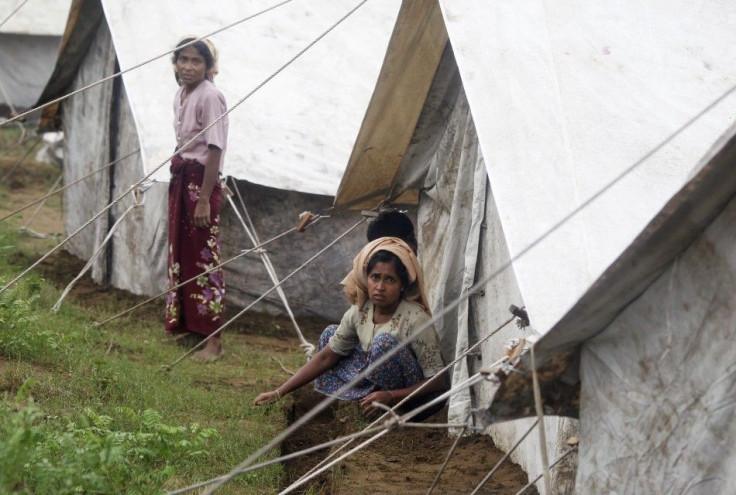Sectarian Violence Re-Ignites In Western Myanmar

Sectarian conflict in western Myanmar has resulted in at least 56 deaths and hundreds of homes burned down since Sunday as ethnic and religious tensions have continued to incite violent confrontations.
Myanmar’s Rakhine state has been wracked with violence between members of the Buddhist Rakhine and Muslim Rohingya ethnic groups since May when a Rakhine woman was raped and murdered by three Rohingya men, sparking a wave of revenge attacks.
The government issued a state of emergency in the region in June after around 90 people were killed in the escalating violence and the military was sent in.
This weekend’s attacks mark the largest outbreak of violence since martial law was declared. It is not clear how many members of each group were among the victims, but 25 were men and 31 were women, the Associated Press reported.
The Rohingya are a minority group in the region mostly populated by the Buddhist Rakhine, and are particularly vulnerable to discrimination as the government does not formally recognize their legal status in the country and brands them instead as "illegal immigrants" from neighboring Bangladesh, which has also refused to recognize them.
Tens of thousands of Rohingya have fled to surrounding countries to escape the violence, mostly to Bangladesh by boat, but have been denied refugee status and turned away.
Agence France-Presse reported that Bangladesh has upgraded border security to prevent any influx of fleeing Rohingya refugees,
"Boats are heading to Bangladesh territory. We've stepped up vigilance to make sure they can't enter our territory," Border Guard Bangladesh commander Col. Zahid Hasan told AFP.
There are an estimated 800,000 Rohingya living in Myanmar, according to the U.N., adding that 75,000 Rohingya living in refugee camps and many more that require humanitarian assistance.
“The U.N. is gravely concerned about reports of a resurgence of inter-communal conflict in several areas in Rakhine State -- which has resulted in deaths and has forced thousands of people, including women and children, to flee their homes,” U.N. Resident and Humanitarian Coordinator in Myanmar Ashok Nigam said in a statement, the AP reported.
“Short term humanitarian support and action towards long term solutions are urgently required to address the root causes of the conflict.”
Read more on the roots of the Rohingya conflict.
© Copyright IBTimes 2024. All rights reserved.




















